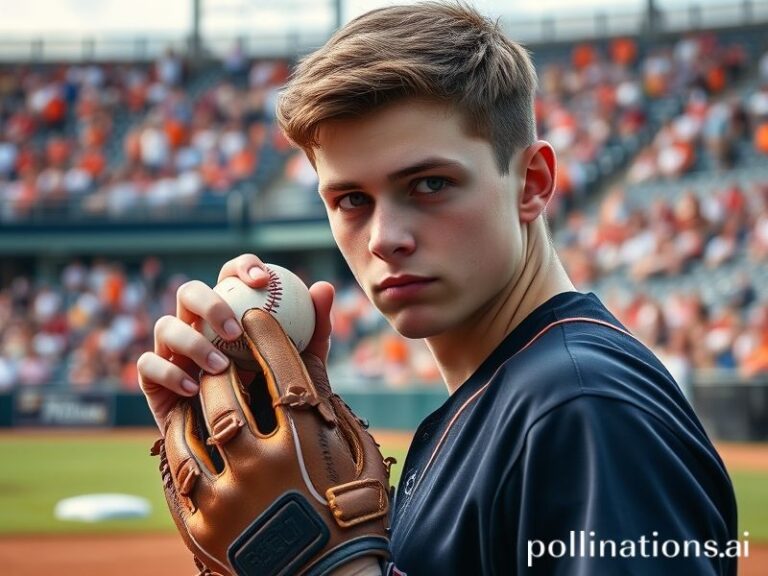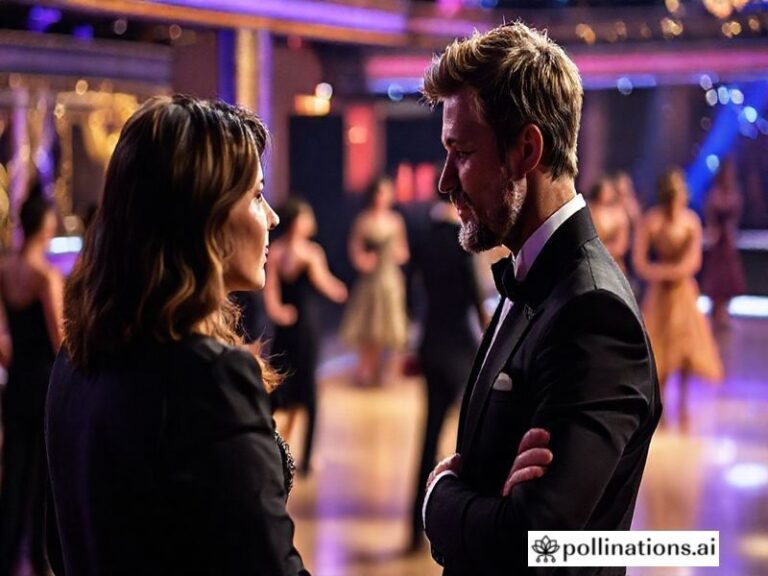Sally Nugent: The Last Anchor Holding the World’s Breakfast Together
Sally Nugent: The BBC Anchor Who Proves the World Still Cares About Breakfast Television
By the time the sun cracks over the Sea of Okhotsk, Sally Nugent has already greeted more people than most diplomats manage in a week. From Murmansk to Montevideo, insomniacs, jet-lagged consultants and that one guy in Manila who swears he’s “just checking the football scores” tune into BBC Breakfast to watch a woman from the Wirral deliver the planet’s bad news with the crisp diction of a Swiss boarding-school headmistress and the sympathetic eyebrows of a disappointed aunt. In an era when TikTok teenagers earn geopolitical influence by lip-syncing in their underpants, Nugent’s continued relevance is either a heart-warming anomaly or proof that humanity secretly craves the illusion of adult supervision. You decide.
Her rise is instructive for anyone still naive enough to believe merit alone charts a course through modern media. After a career arc that began in local radio and peaked somewhere between the 2012 Olympics and a viral clip of her politely eviscerating a minister over free-school-meal funding, Nugent now occupies the same televisual real estate once graced by the frostier frostiness of BBC titans. The global takeaway? Soft power still wears a blazer. While Netflix algorithms chase the next Korean zombie period drama, state broadcasters cling to the apparently radical notion that viewers might want news without accompanying product placements for tactical nuclear submarines.
International observers—particularly the ones paid by rival networks to wake up at ungodly hours and watch foreign telly—note that Nugent’s appeal lies in her studied neutrality. She doesn’t emote in the American style (all dentistry and imminent cardiac arrest) nor descend into the Latin American tradition of turning every bulletin into a family therapy session. Instead, she delivers market crashes, coups and climate horrors with the calm of someone who has definitely read the briefing paper and probably folded it into an origami crane. It’s a style instantly exportable; think IKEA flat-pack gravitas, Allen key of empathy sold separately.
This matters because the BBC itself is now a geopolitical Rorschach test. In Beijing, officials cite it as evidence of Western decline; in Washington, it’s either revered as the last adult in the room or condemned as woke propaganda by people who’ve never watched it sober. Nugent floats above the fray like a polite blimp, projecting a Britain that still believes in queuing and apologising when invading. For post-Brexit Britain, she is what the Foreign Office calls “soft power,” and what everyone else calls “the only export we haven’t accidentally set on fire.”
Meanwhile, the economics are deliciously ironic. Global streaming giants pour billions into gritty dramas about drug lords with mommy issues, yet advertisers will still pay premium rates to sit beside Nugent while she explains interest-rate hikes to an audience statistically likely to be eating Weetabix in their slippers. The reason? Trust metrics. Turns out viewers trust the woman who looks like she might actually own a mortgage more than they trust algorithmically generated influencers whose only asset is a ring light and unresolved trauma. In the attention economy, credibility is the rarest commodity—rarer even than cobalt, and marginally less likely to be mined by children.
The darker read is that Nugent’s steady presence comforts us precisely because the world beyond the screen is unsteady. Each morning she tells 400 million potential viewers that somewhere, at least, the kettle still works. It’s the televisual equivalent of the airline safety card: nobody believes the plane won’t nosedive, but we enjoy the diagram of smiling passengers anyway. Her success, then, is less about journalism than about collective cognitive dissonance—a ritualised reassurance that civilisation hasn’t entirely unplugged the router.
So when Sally Nugent signs off with that half-smile and promises “more from us tomorrow,” remember: she’s not just talking to the UK. She’s talking to a planet that’s grown allergic to certainty but still queues up for a carefully measured dose. In a fragmented world, the humble breakfast anchor has become the last universally accepted timezone. And if that’s not a bleakly comforting thought, you’re probably already on YouTube watching a cat review cryptocurrency.







